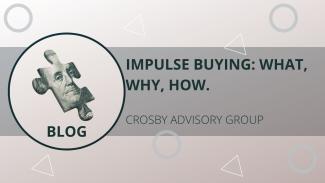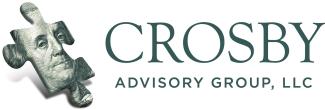
Are You An Impulse Shopper?
Are you an impulse shopper?
Have you ever bought something online or from a store and an hour after the purchase you had buyers’ remorse? Or when you purchase a piece of clothing or attire, and you only wear it once and never again? These are known as impulse purchases; these purchases are usually unplanned and can lead to spending more than one can afford. Here is a list of common impulse purchases:
- Grabbing treats at the grocery store when they weren’t on your list.
- Buying an item like a watch or a purse because it looked nice in the store.
- Purchasing last-minute items or experiences (i.e. concert, sports game) because friends are going.
- Signing up for a streaming service to watch a movie and not cancelling the subscription.
It is estimated that between 40%-80% of purchases are impulsive. Some of the reasons for this is the rush from instant gratification, clever advertising, brand loyalty, and your current emotional state. A few ways to tell if you are impulse spending is if you are seeking a mood boost, feeling buyers’ remorse, or returning/not using the purchase.
Buying something for yourself that you weren’t planning on is not always a bad thing if it is done with restraint. Here are a few ways to make sure you keep your impulse spending to a safe and healthy minimum.
- Keep a budget - When trying to obtain any financial goal or milestone it is important to track where your money is coming from and where it is going.
- Make a shopping list - Creating a list of things you need to get at before heading to grocery stores or retailers is not only a great way to help minimize impulse spending but also allows you to make sure the purchases you are making fit within your budget.
- Paying with cash - Though paying with cash is becoming an uncommon occurrence in daily life, it will ensure that you are only spending the money that you have unlike with a credit card where they may give you a higher credit limit than you need.
- Ask questions - Before reaching into your purse or wallet, asking these questions could help you decide if it is an impulse buy:
- Is there anything that I have in my cart that is an unplanned purchase?
- Are these items needs or wants?
- Are there any emotions affecting my desire for this product?
- Can I come back in a day or two and get it?
- How long would I have to save or work to buy this item?
While small amounts of impulse spending may not affect someone’s finances in a meaningful way, it is important to remember that if left unchecked, impulse purchases could take away an extra money that you had on hand and could potentially eat into your savings if you are not mindful bout your personal finances.
Keeping your spending in check is a key piece of your long-term wealth. Need help? Give us a call and we can assess your overall wealth goals and risk strategy.
Disclaimer: Crosby Advisory Group, LLC provides financial planning, business growth strategies and Insurance protection. CAG is a registered investment advisor. Investing involves risk including the potential loss of principal. Consider all risks before investing.

